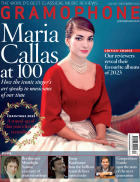Texte paru dans: / Appeared in: |
|
|
Outil de traduction |
|
|
Two Messiahs recorded at the end of last year, and ready for Christmas this. Both, too, were done in large and beautiful venues – Coventry Cathedral and the Royal Chapel at Versailles – in what appears to be ‘concert-plus-patches’ format. The Coventry performance even comes with a concert DVD bonus, its iconic setting looking very handsome indeed, but while Château de Versailles Spectacles often film performances in their own august venue, there seems to be none forthcoming on this occasion.
Actually, it feels as if CdeVS have had enough trouble putting together their audio recording, to judge from the audible production niggles that include an orchestral balance so cruelly close that you could be one of the violinists. It makes for a coarse and tiring sound to endure over the span of the oratorio, and the fact that it is worse in the arias than in the choruses, and that there are a number of bumpy atmos changes here and there, suggest that the bringing together of concert and session takes from different days in this challengingly reverberant acoustic have not received the care they might.
Sadly, I can’t quite get over these annoyances, but if you are immune to them there are things to enjoy in this performance, a conducting debut on record for star countertenor Franco Fagioli. He himself does not sing here, leaving the alto arias to Margherita Maria Sala, a new contralto to me but one whose clean-lined, mahogany voice I look forward to hearing more. Soprano Marie Lys and bass Alex Rosen are both brightly up to the mark, Lys’s passagework in ‘Rejoice greatly’ considerably cleaner than the violins’, Rosen’s in ‘Thus saith the Lord’ not so much. Tenor Pablo Bemsch is impressive but his Verdian tones (like his attempts at English pronunciation) do seem a little out of place. Mind you, the marketing for this recording pushes it as ‘Mediterranean’ and ‘chiaroscuro’, in which case such boldness maybe doesn’t hurt. It is best borne out, though, in the work of the Catalan choir, not always the tidiest, but in which each voice-section seems to have its own confidently worn, open-throated colouring, providing some of the most uplifting moments. Fagioli’s conducting produces few outright surprises but he is generally alert to the music’s possibilities, finding stern meaning in the chorus’s ‘For the Lord hath laid on him the iniquity of us all’, for instance. Cheekily, in the wind-down aria ‘If God be for us’ he turns some of the string ritornellos into organ solos to make a little concerto movement, a rather charming intervention that would surely have made Handel smile.
It says much about the superiority of John Nelson’s Coventry performance that one soon stops worrying about how it got put together. One hardly notices The English Concert at all, but in the good way that means they are perfect accompanists – on the ball throughout, perfectly balanced, and only drawing attention to themselves when invited by Nelson to comment on the words – surging at ‘the kings of the earth rise up’ perhaps, or playfully toying with the articulation between the lines in ‘All we like sheep’. The choir, too, operate on a more sophisticated level, typically English in their fine, clear balance and ripplingly secure passagework but with a touch of soprano vibrato and slightly thickened inner voices hinting at their conductor’s American background. Nelson can thus mould the work with intelligence and flair – just listen to the way he builds towards the ‘Wonderful, Counsellor’ outbursts in ‘For unto us’, with the cellos at one point contributing joyful spread chords. Or how ‘and of his Christ’ stands out in the ‘Hallelujah’, and the final ‘amen’ is so carefully unfolded. Nelson gets these kinds of things right time and again, and the whole Passion sequence in Part 2 is managed with great dramatic skill.
He also has a good line-up of soloists, with his Berlioz regular Michael Spyres a vigorously expressive tenor and countertenor Alex Potter displaying a pleasingly Bowman-like, loose, rounded tone. Lucy Crowe is a singer to treasure in a piece like this, heart-warmingly musical and authentic; she almost shouts for joy in ‘Rejoice greatly’, while in ‘I know that my Redeemer liveth’ the way she tenderly drops the dynamic at ‘the first fruits of them that sleep’ draws you right in. Her ornamentation is also the most convincing of any soloist in either of these Messiahs. Bass Matthew Brook has great presence as always in his wide-ranging numbers, but his voice sounds tired on this occasion.
This, then, is a no-nonsense yet consistently interesting and invigorated Messiah, aided by a well-made recording, that should be both easy and rewarding to live with. The CD version comes with a bonus in the shape of a clutch of alternative arias and choruses gathered from differing versions of the piece, from the original 1741 manuscript through the Dublin premiere and subsequent performances in London up to 1750. Some of these are rarely heard, and though not many will want them stuck on the end of the oratorio like this, they are worth dipping into once in a while for sheer love of Handel. |
|




